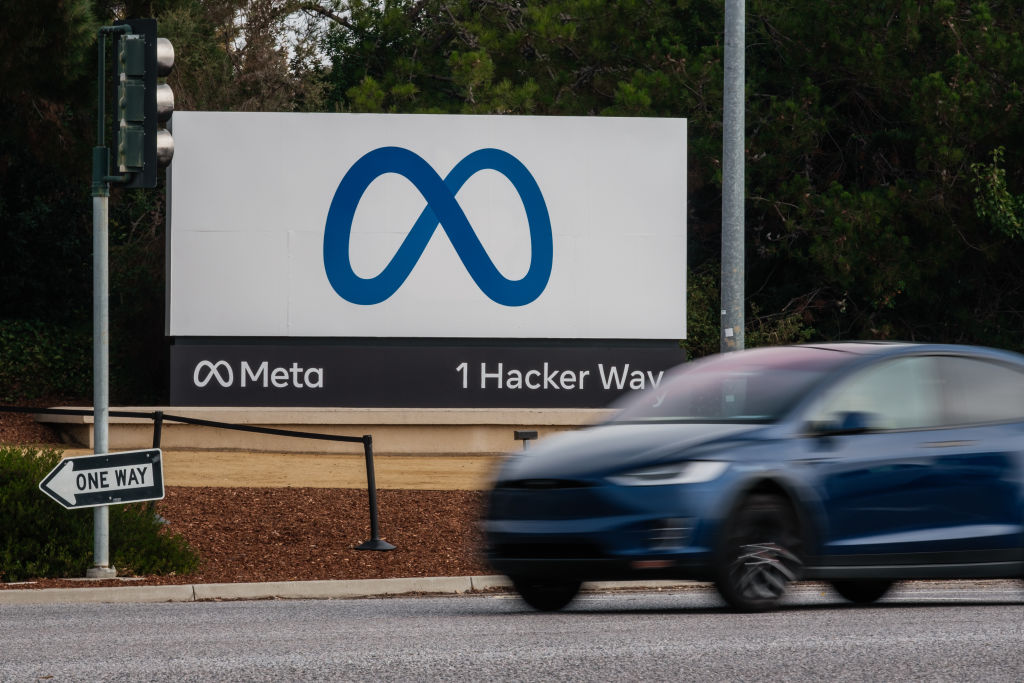Pressure from investors behind Meta's pivot to business hardware
Analysts suggest the company will adopt a more 'sensible' approach for future technology investment


Meta's hardware business is reportedly coming under increasing pressure from investors who are concerned that the company is pouring billions of dollars into projects without a clear plan for profit.
This includes Portal smart displays, which are no longer going to be sold for consumer purposes and instead pivoted more towards business use cases, such as video conferencing, The Information reports.
Into the metaverse: Everything we learned from our virtual tour gallery What is metaverse security? Meta launches free WhatsApp Cloud API
Reports regarding Portal have also coincided with news around the release of the company's first AR glasses – codenamed Orion – which will be distributed to developers, rather than consumers as was previously expected.
The first version of these AR glasses has been in production for around three years with developers and early adopters the most likely targets, initially. However, it's reported that employees at Meta's Reality Labs were only told about the decision to sell them to developers on Thursday (9 June).
Similarly, a Meta brand smartwatch with a camera, which was leaked last year, might never see the light of day, according to a Bloomberg report. No reason has been given for the product's apparent cancellation – nor has it been confirmed by Meta – but the changes to these three projects suggest a more cautious approach to its hardware business.
A hard-line from investors
Meta is primarily a social media company that makes almost all of its money through advertising. Its family of apps, Facebook, WhatsApp and Instagram, contribute 97% of its total revenues. Much of that profit is then reinvested into its hardware and metaverse bets.
However, there was a period when investors expressed real concern over the amount of money the company was funnelling into hardware and the metaverse, according to Leo Gebbie, principle analyst of connected devices at CCS Insight. In April, Meta reported a $3 billion loss in Q1 from its metaverse developments.
Sign up today and you will receive a free copy of our Future Focus 2025 report - the leading guidance on AI, cybersecurity and other IT challenges as per 700+ senior executives
"I think that's why we're seeing a more 'sensible' approach," Gebbis told IT Pro. "Meta is trying to transition to a more sustainable investment strategy for these future technologies, where it's taking the profit from its family of apps (Facebook, Instagram and WhatsApp) and investing it gradually rather than burning through that capital."
RELATED RESOURCE

The CIO imperative: Leading in the digital future
Reimagine how to differentiate with technology
As its name change suggests, Meta is fully committed to a future in the so-called metaverse, and a large part of that is finding financial results from hardware such as VR and AR headsets. However, recent teasers for products such as project Cambria have done little to win over investors.
"It's a really bizarre approach," Gebbie said. "We haven't seen the final form of it [project Cambria] yet. But there was this very strange video of Mark Zuckerberg using Cambria, but without showing what it actually looked like. I find that a really bizarre way of unveiling, or semi-unveiling, a product.
"It was also quite weird that they have continually billed this as an enterprise product, something that's not really for the average consumer, and yet the application that they used in that video had him playing with a fluffy kitten-type thing. To me, it felt like a very weird way to build up attention around project Cambria."
Bobby Hellard is ITPro's Reviews Editor and has worked on CloudPro and ChannelPro since 2018. In his time at ITPro, Bobby has covered stories for all the major technology companies, such as Apple, Microsoft, Amazon and Facebook, and regularly attends industry-leading events such as AWS Re:Invent and Google Cloud Next.
Bobby mainly covers hardware reviews, but you will also recognize him as the face of many of our video reviews of laptops and smartphones.
-
 Redefining resilience: Why MSP security must evolve to stay ahead
Redefining resilience: Why MSP security must evolve to stay aheadIndustry Insights Basic endpoint protection is no more, but that leads to many opportunities for MSPs...
-
 Microsoft unveils Maia 200 accelerator, claiming better performance per dollar than Amazon and Google
Microsoft unveils Maia 200 accelerator, claiming better performance per dollar than Amazon and GoogleNews The launch of Microsoft’s second-generation silicon solidifies its mission to scale AI workloads and directly control more of its infrastructure
